Columbus Humane opens low-cost veterinary care center, pet food pantry on South Side
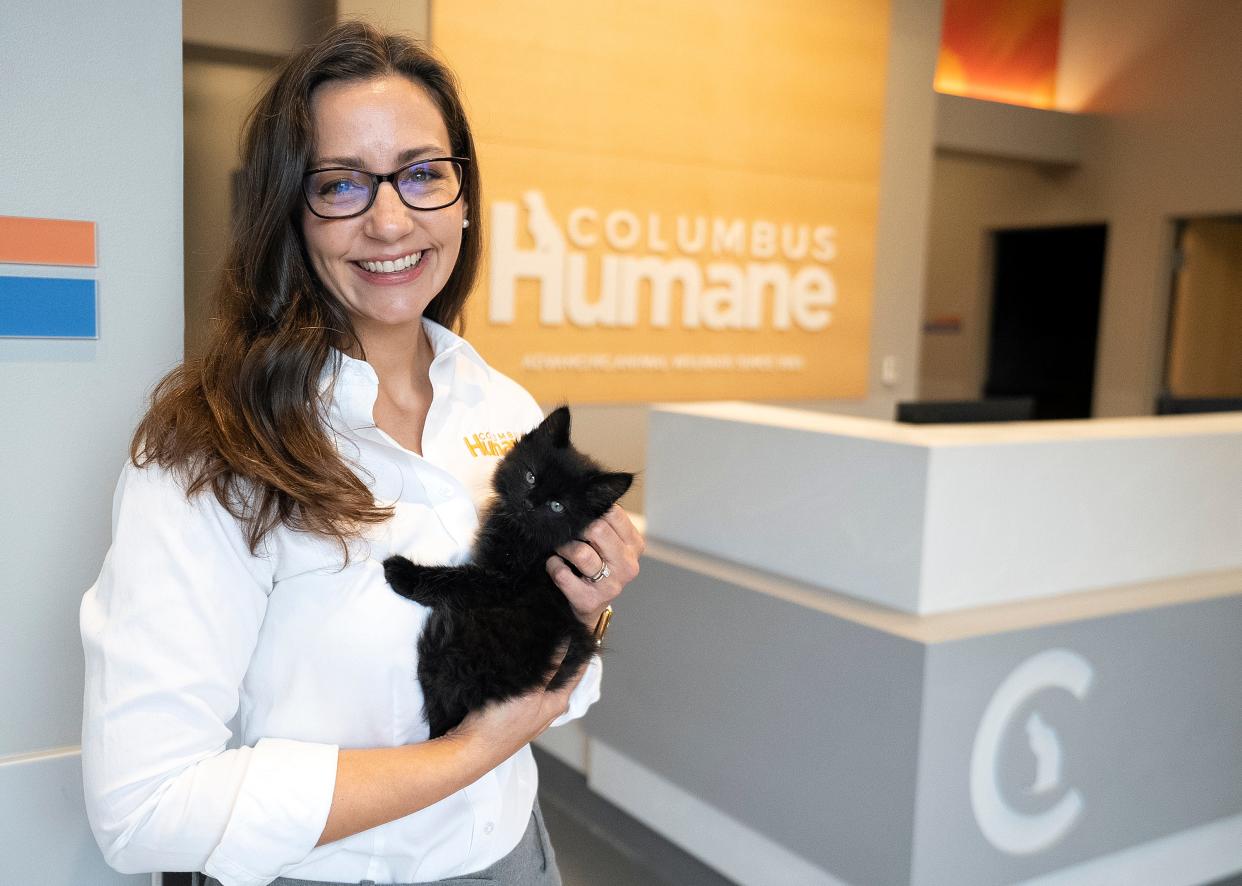
On Columbus' South Side is a veterinary care center like no other.
The Essential Care Center offers low-cost veterinary care, a pet food pantry and classes to help develop the future veterinary workforce. It's the only center of its kind in the United States, as it combines those three services.
The center, made possible by a $6 million campaign, opened in June to select customers as it tested out its processes but is now officially open to the public.
At 3772 S. High St., the center is open 9 a.m. to noon and 1 to 4:30 p.m. Mondays through Fridays and closed on weekends. Appointments are required and can be made online at www.columbushumane.org/essential.
The center is important because, with the labor shortage in the veterinary field, prices of care have increased, prohibiting some pet owners from being able to access care for their animals, Columbus Humane CEO Rachel D.K. Finney said.
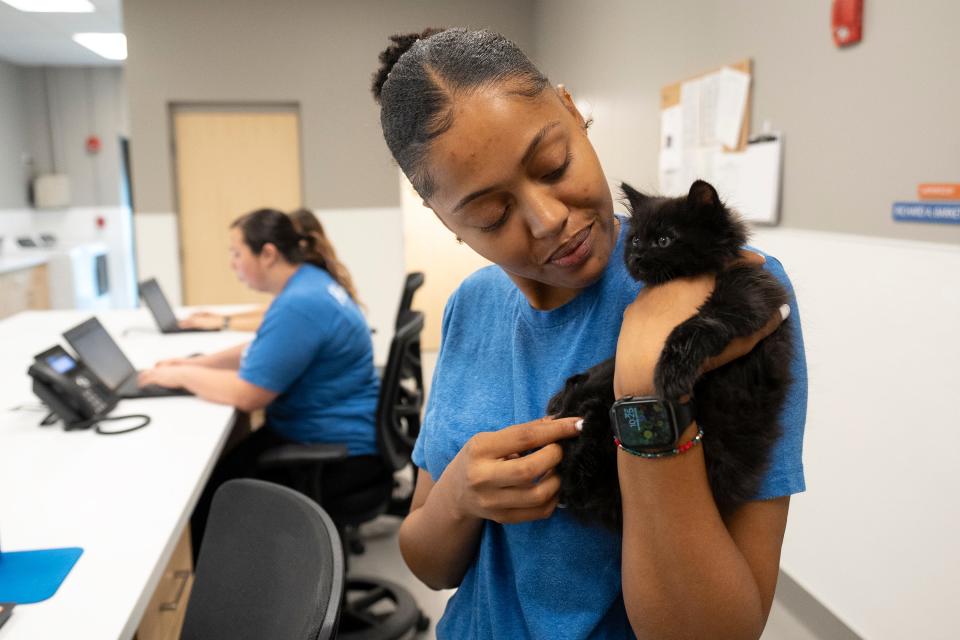
It's not unusual for a veterinarian visit to cost around $400, she said, a cost a 2021 IRS survey said 68% of America adults would see as a hardship.
"We are very specifically aimed at helping people who can't afford care elsewhere," Finney said. But, "we would miss a lot of people who really critically need help who don't qualify for government assistance," if there were an income requirement.
Thus, there are no income or geographic requirements for people to visit the center, Finney said.
A donor bought the building, about 11,000 square feet, for Columbus Humane in December 2021, Finney said. It is situated between two Central Ohio Transit Authority bus stops.
What services are offered at Columbus Humane's Essential Care Center?
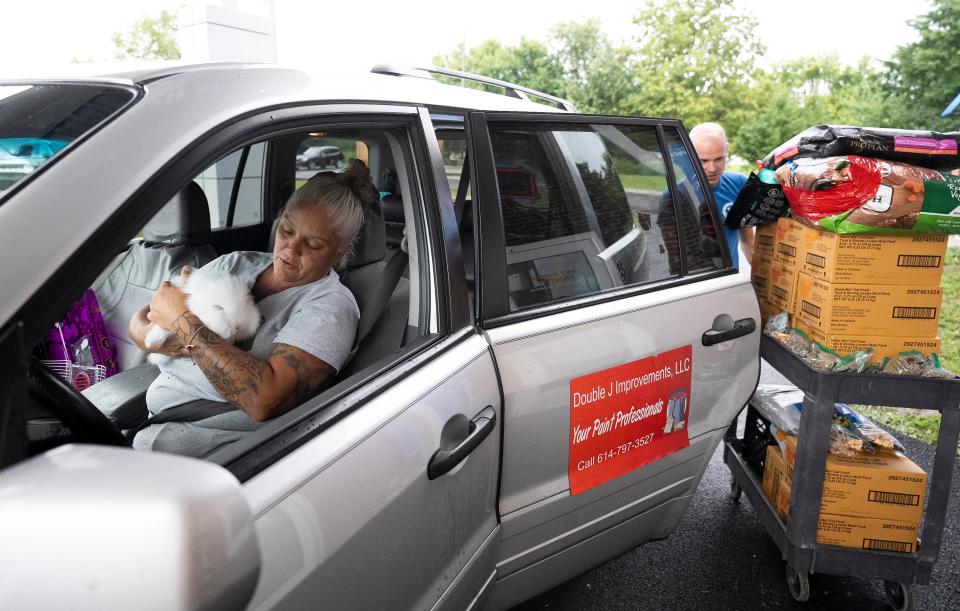
The Essential Care Center offers:
A drive-thru pet food pantry that distributes over 20,000 pounds of free dog and cat food every week. Appointments can be made online, and the hours are the same as the center. For more information, contact 614-602-6700 or email petfood@columbushumane.org.
A subsidized veterinary clinic with fixed, reduced fees for each service and no surprise fees, as services are paid for upfront and prices are listed online. The clinic offers wellness exams; vaccinations; surgery services, including spaying and neutering; sick and injured care and more. Diagnostic services, including X-rays and lab tests, can be done on site so owners can then decide on further care.
A Veterinary Assistant Training Program called the Rachael Ray Foundation Pathways to Careers in Animal Health program.
Community partnerships bolster veterinary workforce development
An important part of helping pet owners access and afford the care their pets need is helping local veterinary clinics decrease costs of services. One way to do that is to help them find employees, Finney said, as short staffing can drive up wages as clinics compete with one another for employees. The cost then gets passed on to clients.
"We had to figure out a way to make an impact on the workforce in addition to direct services," Finney said. "What we wanted to do is bolster and support our clinics in addressing some of these workforce shortages so they could also extend more affordable care to their clients."
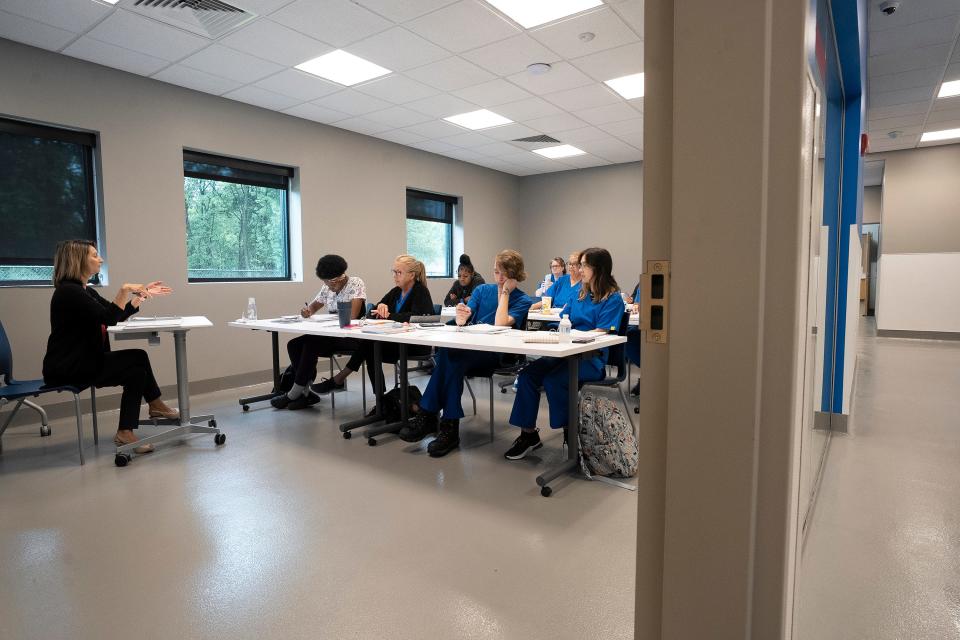
More than 20 students went through free workforce training to become veterinary assistants since classes began last fall, Finney said. The goal is to help local clinics fill more than 200 support staff vacancies.
The seven-week training includes 40 hours of lecture and 30 hours of hands-on time in the lab, working with patients, she said. Then, students spend 90 hours working at a partner veterinary clinic in the community before getting a job with the help of a partnership Columbus Humane has with Jewish Family Services.
If, once they are trained as veterinary assistants, individuals want to go on and get a two-year associate degree to become registered veterinary technicians, Columbus Humane can help with that, too.
Through a partnership with the Workforce Development Board of Central Ohio, students can get supplemental support while in the training program, including up to $15,000 toward their degree, Finney said.
"Our students are learning to do this job by helping people and animals who wouldn't otherwise get care," she said.
Over 106,000 pets live in poverty in Franklin County
There are more than 106,000 pets that live below the poverty line in Franklin County, according to Columbus Humane, but “veterinary care has become a luxury in this country," Finney said. To her, that's unacceptable.
“Our new Essential Care Center will be a one-stop shop for pet owners, allowing them to be and remain the hero they already are in their pets’ lives," Finney said. "Everyone deserves a companion, and everyone should have access to the care necessary to sustain them.”
The nonprofit chose the South Side because it was a place where officials saw great need. The pet food pantry serves around 800 families from that area and investigates many animal cruelty cases in that part of town each year, most of which are due to neglect.
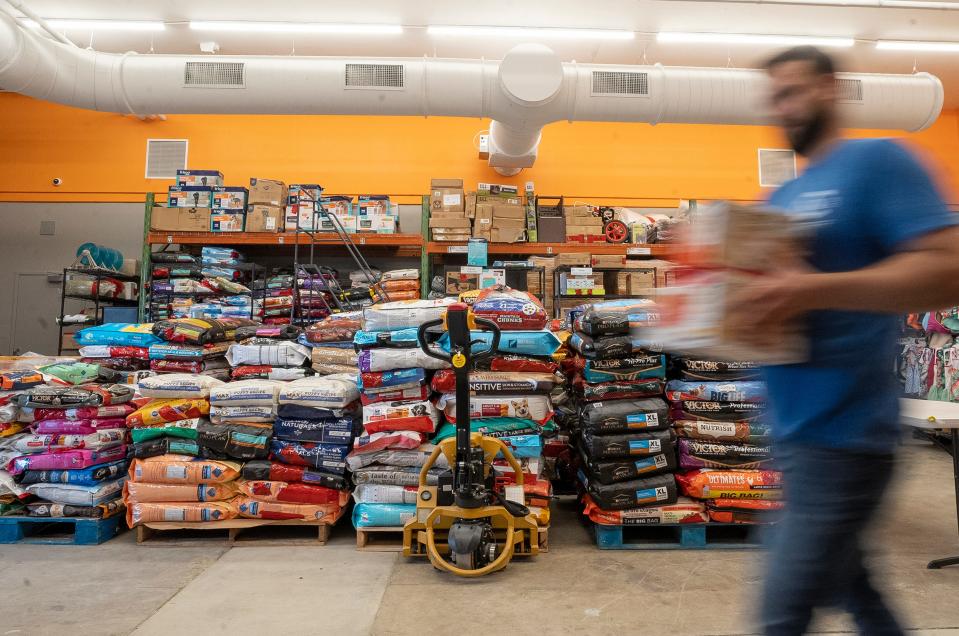
Neglect of a pet often isn't because of an owner's lack of love or care for that animal, Finney said, but rather a lack of access to services and items they need to care for them. A lack of access to veterinarian care for pets can also put the whole household at risk for parasites and zoonotic disease.
In 2020, the nonprofit saw a huge rise in demand for pet food and expanded its pet food pantry program, she said.
In 2022, more than 6,100 households in Franklin County used pet food assistance programs, feeding more than 24,000 dogs and 18,000 cats, according to Columbus Humane. About 250 families are served each week.
“It’s common for pet owners to prioritize food and care for their pets over themselves when they have trouble affording both,” Finney said. “When one in five Franklin County residents experience food insecurity, programs like the Pet Food Pantry are vital in ensuring that human and pet needs aren’t met through the sacrifice of one or the other.”
dking@dispatch.com
@DanaeKing
This article originally appeared on The Columbus Dispatch: New low-cost veterinary clinic, pet food pantry opens in Columbus

